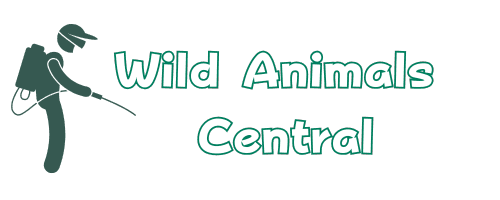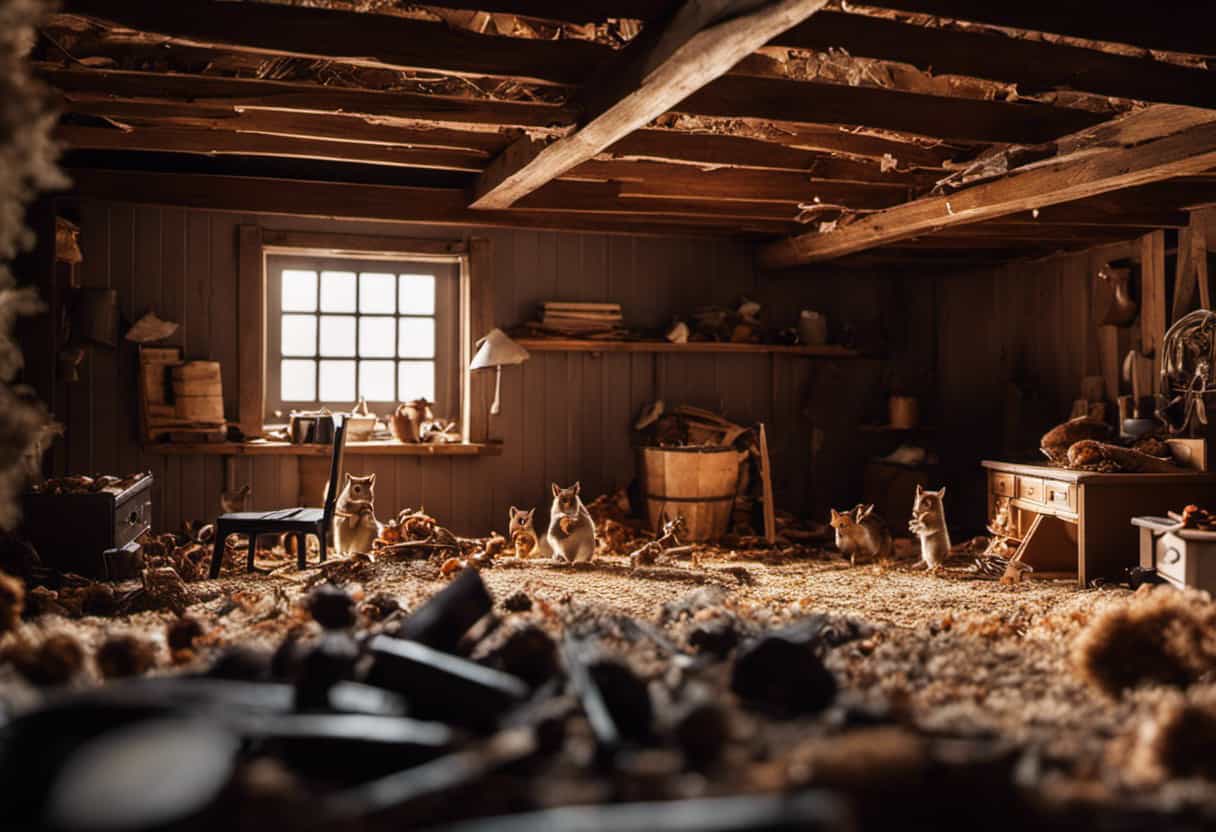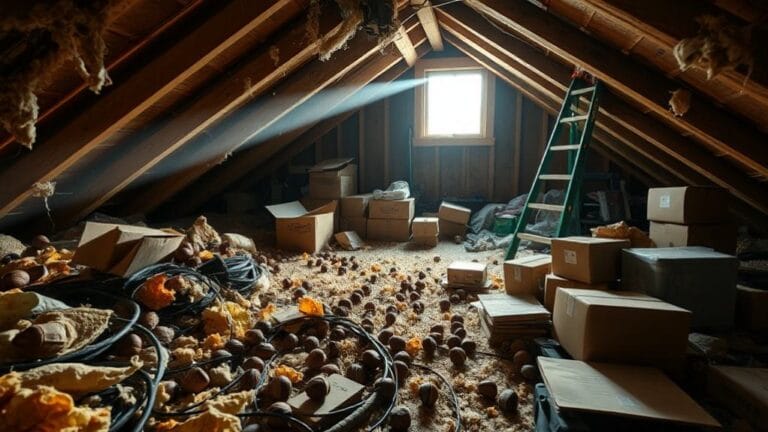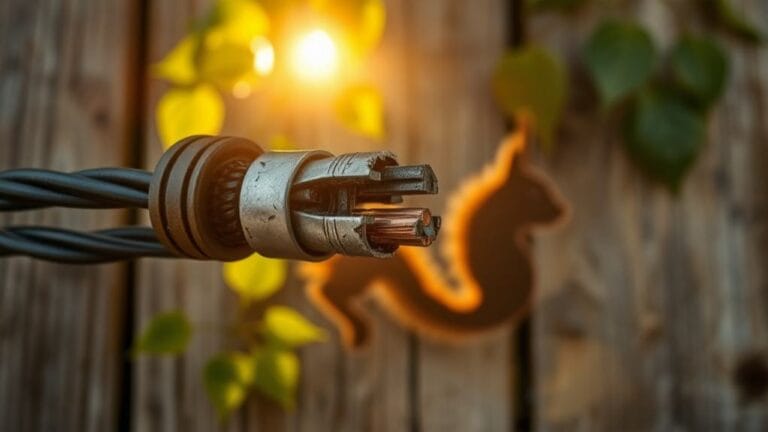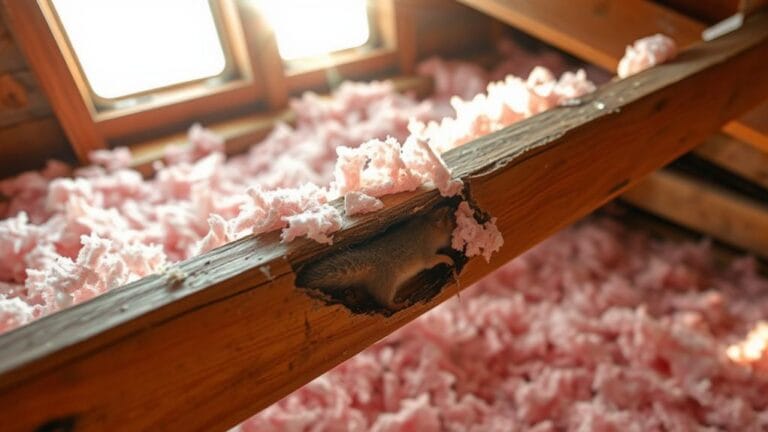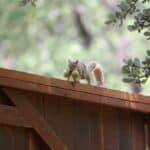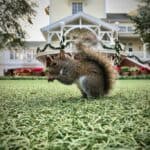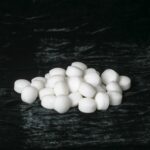Imagine waking up one morning to the sound of scurrying feet above your head. As you groggily make your way to the attic, you’re met with a shocking sight: squirrels.
These seemingly innocent creatures can wreak havoc in your home, causing damage that goes beyond what meets the eye. In this article, we will explore the extensive harm that squirrels can inflict in your attic.
From health risks to structural damage, electrical hazards to insulation destruction, prepare to discover the hidden dangers lurking above you.
Key Takeaways
Table of Contents
- Squirrels can bring in parasites like fleas, ticks, and mites that transmit diseases to humans.
- Squirrel droppings and urine can contaminate insulation and air ducts, leading to respiratory issues.
- Squirrels can cause structural damage by chewing through electrical wires, insulation, wooden beams, and the roof.
- Squirrels chewing through electrical wires pose a fire hazard, electrical malfunctions, and power outages.
Health Risks Associated With Squirrels in the Attic
There are potential health risks when squirrels are in the attic. Squirrels can not only cause damage to the structure of your home but also pose health risks to you and your family.
When squirrels infest your attic, they can bring in parasites like fleas, ticks, and mites that can transmit diseases to humans. Additionally, their droppings and urine can contaminate the insulation and air ducts, leading to respiratory issues.
Squirrels are also known for chewing through electrical wires, which can cause a fire hazard. Furthermore, their constant scratching and scurrying can create a disturbance, disrupting your sleep and causing stress.
To protect yourself and your home from these health risks, it is crucial to address squirrel infestations promptly and seek professional assistance from a pest control specialist or wildlife removal expert.
Structural Damage Caused by Squirrels
Squirrels can cause structural issues in your attic. Here are three ways they can damage the structure of your attic:
Chewing through electrical wires: Squirrels have sharp teeth that can easily chew through electrical wires, posing a fire hazard and potentially cutting off power to your home.
Insulation damage: Squirrels love to nest in warm and cozy places, and your attic’s insulation provides the perfect nesting material. However, when they tear and remove insulation, it can lead to decreased energy efficiency and increased heating and cooling costs.
Wood damage: Squirrels have a natural instinct to chew, and when they find their way into your attic, they may chew on wooden beams, support structures, and even the roof itself. This can result in structural weakening and compromise the overall integrity of your home.
It is important to address squirrel infestations promptly to prevent further damage and ensure the safety of your attic and home.
Electrical Hazards From Squirrel Activity
Chewing through electrical wires, squirrels can pose a fire hazard and cut off power to your home. When squirrels gain access to your attic, they may gnaw on electrical cables, causing damage that can lead to electrical malfunctions and even fires.
Squirrels have sharp teeth that can easily penetrate the insulation surrounding electrical wires, exposing the conductive material inside. This puts your home at risk of electrical short circuits, sparks, and potential fires. Additionally, if a squirrel chews through the main power line supplying your home, it can result in a complete power outage.
To prevent these hazards, it is crucial to address any squirrel infestations in your attic promptly. Contact a professional pest control specialist or wildlife removal expert to safely and effectively remove the squirrels and repair any damages they have caused.
Protect your home and ensure electrical safety through proper fire prevention measures.
Insulation Destruction by Squirrels
When squirrels make their way into your attic, they can cause significant damage. This damage can compromise the energy efficiency of your home and lead to costly repairs. These furry creatures have a knack for chewing through electrical wires, which can create potential fire hazards. Additionally, their destructive behavior can damage insulation, resulting in decreased energy efficiency and the need for extensive repairs.
Energy Efficiency Compromised
To ensure your attic maintains its energy efficiency, it’s important to address the damage caused by squirrels. These furry pests can wreak havoc on your attic, compromising its insulation and leading to a host of problems. Here are three key ways squirrels can impact your attic and energy efficiency:
Insulation Damage: Squirrels love to nest in attics and will tear up insulation to create their nests. This can lead to a significant reduction in the effectiveness of your insulation, resulting in energy loss and increased heating or cooling costs.
Chewed Electrical Wires: Squirrels have a natural instinct to chew on objects, including electrical wires. This behavior can create a fire hazard, putting your home and family at risk.
Structural Harm: Squirrels are skilled climbers and can cause damage to the structure of your attic. They may gnaw on wooden beams, creating weak points in the structure that could lead to costly repairs.
Costly Repairs Required
When squirrels take up residence in your attic, the damage they can cause can be extensive and costly. It is important to understand the potential risks and consequences of having squirrels in your attic, as well as the preventative measures that need to be taken. Here are some of the damages that squirrels can inflict in your attic:
| Damage | Description |
|---|---|
| Chewing through electrical wires | Squirrels have a natural instinct to chew, and this can lead to exposed wires and electrical malfunctions, posing a fire hazard. |
| Insulation damage | Squirrels will tear up and use insulation as nesting material, reducing its effectiveness and potentially leading to energy loss. |
| Structural harm | Squirrels can cause damage to wooden beams, roof supports, and other structural elements in your attic, compromising the integrity of your home. |
To mitigate these risks, it is essential to enlist the help of a professional wildlife removal expert. While the cost of professional removal may vary depending on the extent of the infestation, it is an investment that can save you from costly repairs in the long run. Additionally, taking preventative measures such as sealing entry points and trimming tree branches near your home can help deter squirrels from entering your attic.
Fire Hazards Linked to Squirrels in the Attic
When squirrels make their way into your attic, they pose not only a risk of insulation damage, but also a danger to your electrical wiring. These critters have a tendency to chew through wires, putting your home at risk of electrical fires.
Additionally, their activities can lead to insulation damage, resulting in decreased energy efficiency and potential structural harm.
Electrical Wiring Dangers
You should be aware of the electrical wiring dangers caused by squirrels in your attic. Squirrels are notorious for chewing on electrical wires, which can lead to serious fire hazards. Here are three reasons why you should address this issue immediately:
Risk of electrical fires: Squirrels’ constant gnawing on wires can expose the electrical currents, increasing the chances of short circuits and electrical fires in your home.
Costly repairs: Squirrel-induced electrical damage can be expensive to repair. Not only do you have to fix the damaged wires, but you may also need to replace other electrical components that were affected by the fire.
Disruption to daily life: Dealing with a fire caused by squirrel damage can be incredibly disruptive. You may have to temporarily relocate while repairs are being done, causing inconvenience and stress.
To prevent these risks, it is crucial to address squirrel infestations in your attic promptly. Contact a professional pest control or wildlife removal expert to safely and effectively remove the squirrels and repair any electrical damage they may have caused.
Insulation Damage Risks
To mitigate the risk of insulation damage, it’s important to address any pest infestations in your home promptly. Squirrels can cause significant damage to insulation in your attic, which can lead to various consequences.
When squirrels make their way into your attic, they often create nests using insulation materials. In their search for food and nesting materials, squirrels may tear, shred, or remove insulation, causing it to become less effective in regulating temperature and energy efficiency. This can result in increased heating and cooling costs for your home.
Additionally, damaged insulation can create opportunities for other pests, such as insects and rodents, to invade your attic. To prevent insulation damage, it is crucial to implement effective squirrel control methods, such as sealing entry points, trimming tree branches near the house, and installing deterrents.
Regular inspections and timely intervention can help maintain the integrity of your insulation and preserve its functionality.
Water Damage Resulting From Squirrel Infestations
If left unaddressed, water damage caused by squirrel infestations in your attic can lead to costly repairs. Squirrels can cause significant water damage through their destructive behaviors. Here are three ways squirrels can contribute to water damage in your attic:
Chewing through pipes: Squirrels have sharp teeth that they use to gnaw on various materials, including pipes. If they chew through the pipes in your attic, it can lead to leaks and water damage.
Damaging roof vents: Squirrels are adept climbers and can easily access your roof. They may chew through roof vents or damage them in their attempts to enter or exit your attic. This can allow rainwater to enter your attic and cause water damage.
Clogging gutters: Squirrels may also gather debris, such as leaves and twigs, to build their nests in your attic. If they bring this debris into your attic, it can get trapped in your gutters and block the flow of water during rainstorms. This can lead to overflowing gutters and water damage to your attic and home.
To prevent water damage caused by squirrel infestations, it is crucial to address the issue promptly. Consider contacting a professional pest control specialist or wildlife removal expert who can safely and effectively remove the squirrels from your attic and implement preventive measures to avoid future infestations.
Squirrels and the Risk of Pest Infestations
Squirrels and the Risk of Pest Infestations
Now that we have discussed the potential water damage resulting from squirrel infestations in the attic, let’s explore another significant risk associated with these furry creatures: the possibility of other pest infestations. Squirrels can inadvertently introduce various pests into your home, causing further damage and health concerns.
| 1. | Rodent Control |
| Squirrels are rodents, and their presence in the attic can attract other rodents, such as mice or rats. These pests can quickly multiply and cause extensive damage to your property. They can chew through furniture, wires, and insulation, compromising the structural integrity of your home. Additionally, rodents can carry diseases and contaminate your living space with their droppings and urine. Effective rodent control measures are necessary to prevent further infestations. | |
| 2. | Squirrel Prevention |
| To minimize the risk of pest infestations caused by squirrels, it is crucial to implement preventive measures. Start by sealing any potential entry points, such as gaps or holes in the roof or walls. Trim tree branches near your home to discourage squirrels from accessing your attic. Additionally, consider installing squirrel deterrents, such as motion-activated lights or ultrasonic devices. Regular inspections and maintenance can help identify and address any squirrel-related issues promptly. By taking these preventive steps, you can protect your home from the damaging consequences of pest infestations. |
Frequently Asked Questions
How Do Squirrels Get Into the Attic in the First Place?
To prevent squirrels from getting into your attic, it’s important to identify and seal any entry points. Check for gaps or holes in the roof or walls. Additionally, ensure your attic insulation is in good condition to discourage squirrel activity.
Are There Any Legal Methods to Remove Squirrels From the Attic?
There are legal methods for squirrel removal from the attic. It is important to prioritize humane ways to get rid of them. Hiring a professional wildlife removal expert ensures a safe and effective solution.
Can Squirrels Cause Damage to the Exterior of the House as Well?
Squirrels in urban areas can cause damage to the exterior of your home. Squirrel proofing is important to prevent them from accessing your attic. They can chew through wires, damage insulation, and cause structural harm.
Do Squirrels Carry Any Diseases That Can Be Transmitted to Humans?
Squirrel borne diseases can pose health risks if you have a squirrel infestation in your attic. It’s important to address the problem promptly to prevent the transmission of diseases and ensure the safety of your household.
Are There Any Signs to Look for to Determine if There Is a Squirrel Infestation in the Attic?
To determine if you have a squirrel infestation in the attic, look for signs like scratching noises, droppings, chewed wires or insulation, and entry points. Prevent their entry by sealing holes and trimming tree branches near your house.
Conclusion
In conclusion, squirrels in the attic can cause significant damage and pose various risks.
Their activities can lead to health hazards, structural harm, electrical hazards, insulation destruction, fire hazards, water damage, and increased risk of pest infestations.
These consequences highlight the importance of addressing squirrel infestations promptly.
By understanding their behavior and habits, homeowners can take necessary measures to prevent and mitigate the damage caused by squirrels.
Seeking the assistance of a professional pest control specialist or wildlife removal expert is recommended to effectively address the issue and ensure the safety of your home.
